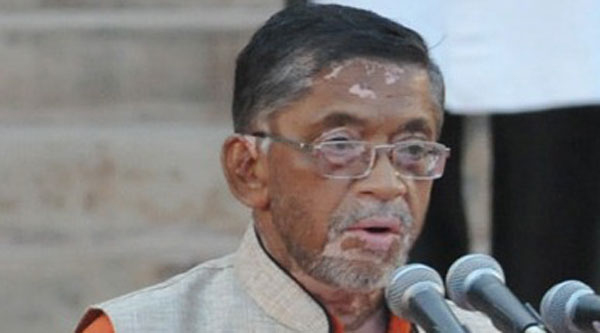The government has agreed to reduce to one year the requirement of five years of continuous service to be eligible for gratuity but limited the scope to those employees with fixed-term contracts.
Labour unions and the parliamentary standing committee on labour, however, have iterated the demand that the benefit be extended to all sections of employees, not only fixed-term workers whose employment ends with the lapse of the contract period and who are mostly low-ranked staff such as labourers, factory operators, helpers and drivers.
An official in the labour ministry said the government was planning to insert a specific provision in the draft Industrial Relations Code to make it obligatory for employers to pay gratuity to those fixed-term employees who have completed a year of service.
He said the government had informed the parliamentary standing committee on labour about the plan to reduce the ceiling.
“As it is fixed-term employment, it is coming in a big way. We want the workers to get the gratuity also. So one year will be more appropriate,” the report of the committee on industrial code has quoted the labour secretary as saying.
According to the Payment of Gratuity Act, gratuity is paid at the rate of 15 days’ wages for every year of service. Now, employees are eligible for gratuity only if they have worked for a minimum of five years continuously.
The government’s decision has failed to satisfy the standing committee on labour and workers’ organisations. In its latest report on the Social Security Code, the standing committee headed by BJD parliamentarian Bhartruhari Mahtab has recommended extension of the benefit of the reduced ceiling to all types of employees.
“The committee desires that the time limit of five years as provided for in the Code for payment of gratuity be reduced to continuous service of one year. Such provision be extended to all kinds of employees including contract labours, seasonal workers, piece rate workers and fixed-term employees and daily/monthly wage workers,” the report said.
Mahtab told The Telegraph that social security has to be universal. Gratuity is a key component of social security and cannot be denied to sections of employees, he pointed out.
“Our recommendations are for universalisation of social security. Gratuity is paid as part of full and comprehensive compensation to workers for the services rendered. Employments for a shorter duration are increasing. There is no logic for extending a relaxation in norms to only fixed-term employees and excluding the others,” the leader from Odisha said.
The employment of contract workers is renewable. Workers in the unorganised sector, which makes up the vast majority of India’s workforce, have no contracts. All of them stand to lose out if the proposed relaxation is not extended to them.
Shyam Sundar, a professor of human resource management at Xavier School of Management (XLRI), Jamshedpur, said the demand for a reduction of work tenure for gratuity was justified.
“The practice of ‘gig’ (short-term and on-demand employment contracts) has been rising in the manufacturing and service sectors in India in recent years. Post-Covid, it will rise further, given the product market uncertainties. Also, gig might suit youths and female employees, which will increase their labour force participation. Therefore, the call for gratuity for employees with short tenures makes sense and is fair,” Sundar said.
Mahtab, the MP, said the committee had recommended that if a company engages a worker on a fixed-term contract for more than two terms, it should be considered permanent appointment.
The RSS-affiliated Bharatiya Mazdoor Sangh (BMS) has also demanded that the reduced gratuity ceiling be applicable to all types of employees.
“We want the employers to contribute a gratuity amount on a monthly basis. The Employees’ Provident Fund Organisation should maintain a parallel gratuity account for all workers,” said Virjesh Upadhyay, the BMS general secretary.











